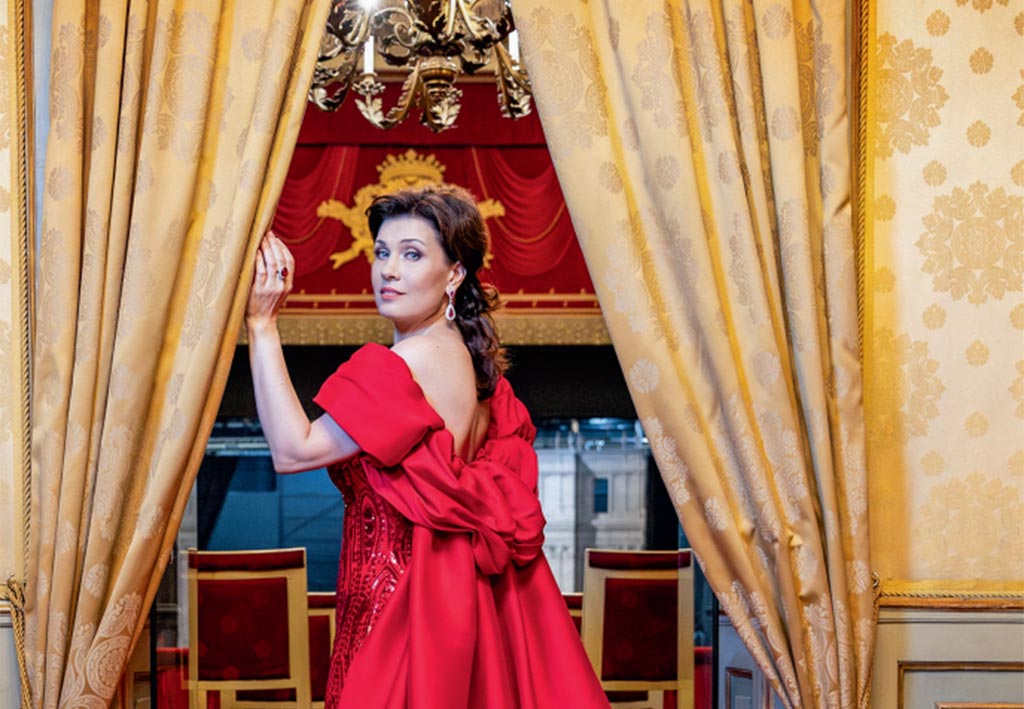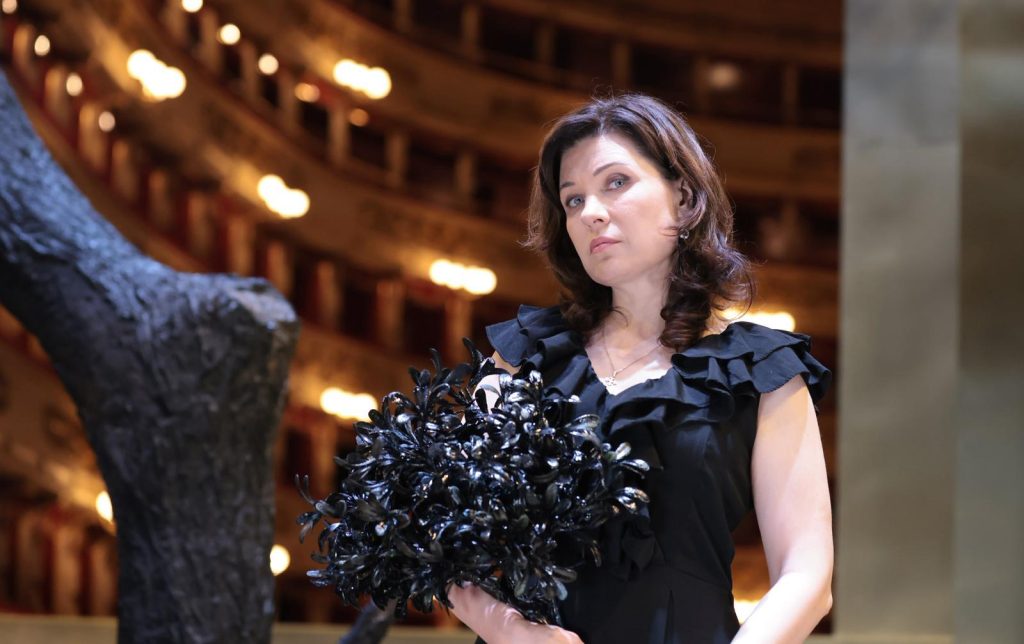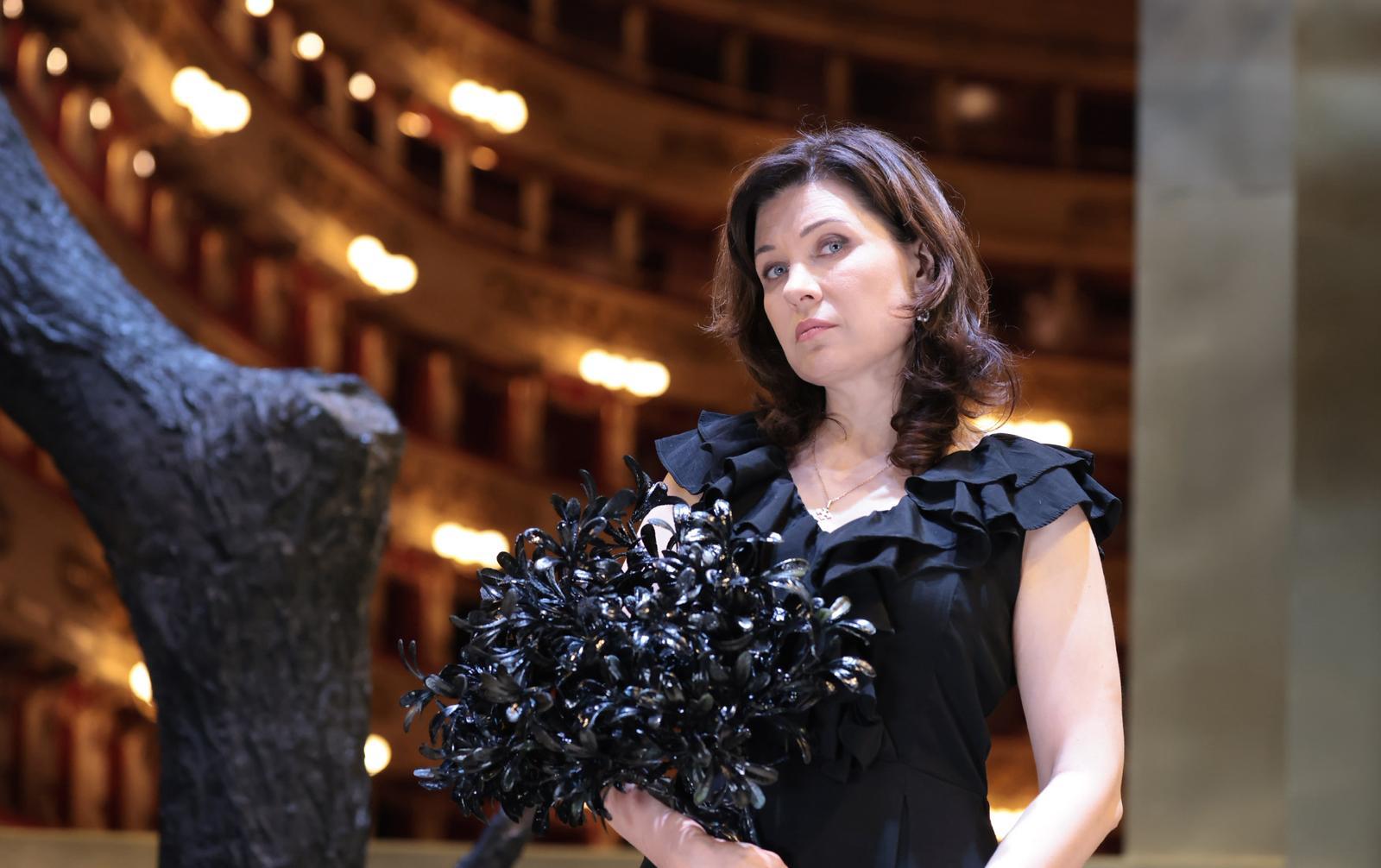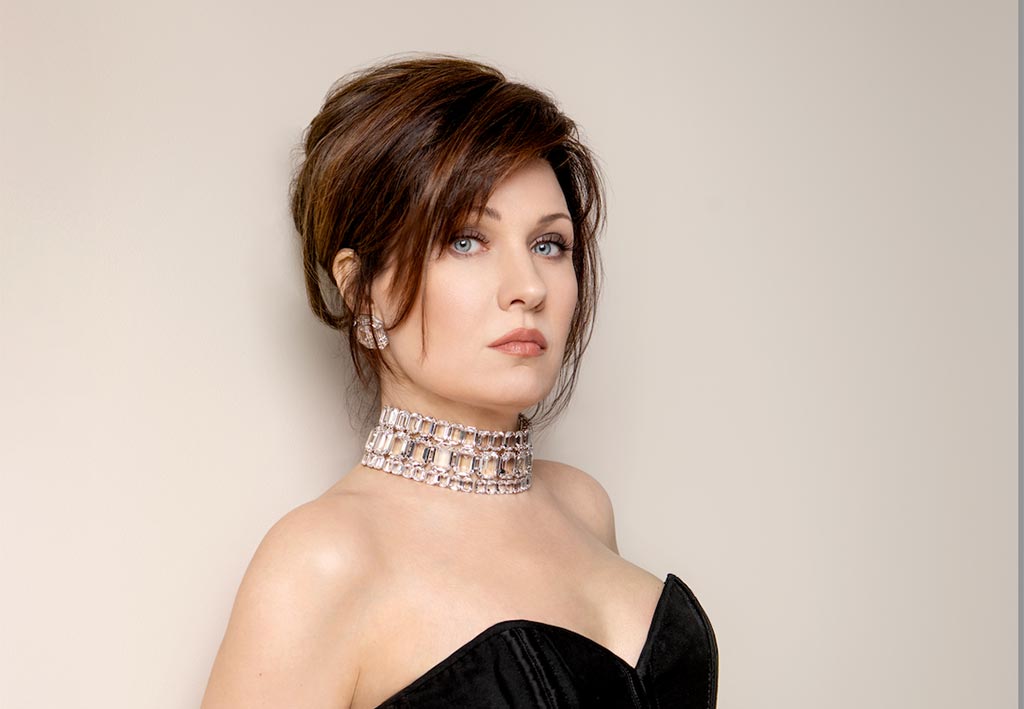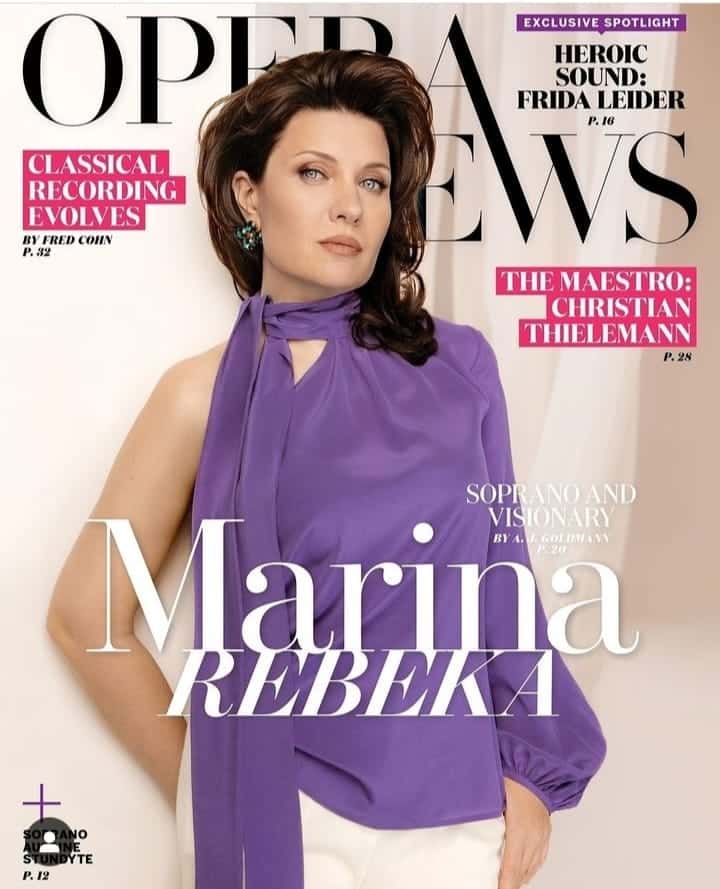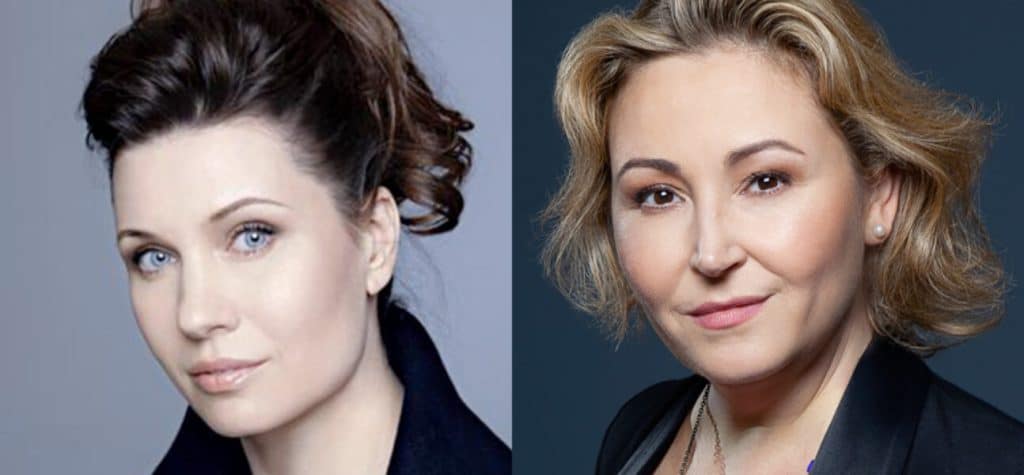by Natasha Loges / BBC Music Magazine
Voyage
Jaëll: Lieder; Les Orientales – ‘Rêverie’; Saint-Saëns: La Madonna col Bambino; Alla Riva del Tebro; Viardot-Garcia: 12 Poems by Pushkin, Fet and Turgenev – selection; Doppel-Liebe – L’innamorata; The Willow; Sérénade; plus songs by Chaminade, Duparc, Fauré, Gounod, Ravel and Widor
Marina Rebeka (soprano), Mathieu Pordoy (piano)
Prima Classic PRIMA014 71:33 mins
This debut song recording from operatic soprano Marina Rebeka, with up-and-coming vocal coach and collaborative pianist Mathieu Pordoy, offers an original and appealing programme of mid-to late-19th-century French songs. There are real discoveries here, including a set of songs by the pioneering pianist-composer Marie Jaëll, alongside familiar figures like Widor, Gounod, Chaminade, Viardot, Saint-Saëns and Ravel.
Rebeka’s discography is opera-centred thus far, and with good reason. It’s a superb voice, with a seamless, velvety legato and a brilliant, ringing colour across entire range. She and Pordoy have a strong vision for the ‘character’ songs, such as Chaminade’s ‘Chanson slave’ (Slavic Song), Saint-Saëns’s ‘Désir De l’Orient’, Widor’s ‘Chanson Indienne’ and Fauré’s ‘Les Roses d’Ispahan’, all luxurious, sun-drenched products of French orientalism. The more introvert songs are less focused.
But the Jaëll songs are fascinating, although their expansive structures and searching texts sometimes demand more introspective colours. Rebeka sounds superbly healthy throughout, and Pordoy’s restrained and elegant playing ensures she remains centre stage, though he could spar with this splendid voice more boldly. Still, there is much to enjoy; ‘Der Sturm’ is full of variety, and Rebeka’s voice carries her effortlessly across fiendish vocal terrain. The closing Viardot set is a welcome addition to this wonderful composer’s growing discography, ‘The Willow’ especially lovely. Rebeka revels in the Russian language and is supported by glowing recorded sound.
Natasha Loges
Read a review also here: https://www.classical-music.com/reviews/choral-song/voyage-marina-rebeka/




